Hey team! We all know that keeping our emergency contact information up to date is super important for our safety and well-being at work. Whether it's a change in family dynamics or simply updating phone numbers, having the correct information on file ensures that we can reach the right people in case of an emergency. If you haven't updated your details lately, now's a great time to do soâlet's look out for one another! Read on for a simple template to help you update your emergency contacts with ease.
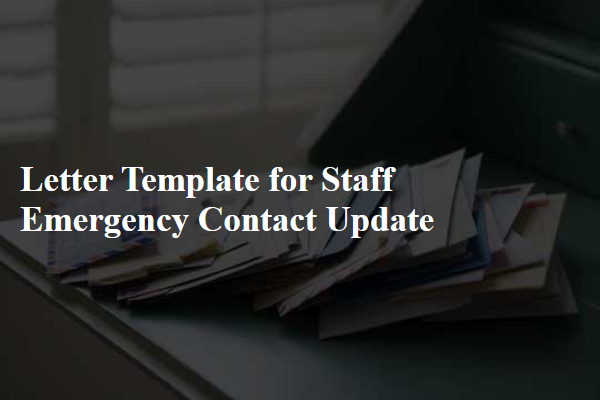
Clear Identification Section
Ensuring accurate emergency contact information is crucial for staff safety in any organization. The identification section must include essential details: employee's full name (for instance, Johnathan Smith), job title (such as Marketing Manager), department (like Sales and Marketing), and employee identification number (e.g., ID# 12345). Additional details may encompass contact information, including personal phone number (e.g., +1-555-1234) and personal email (like johnathan.smith@email.com). Furthermore, emergency contacts should be clearly identified with their full names (e.g., Jane Smith), relationship to the employee (such as spouse), and current phone numbers (e.g., +1-555-5678). This organized format streamlines communication during emergencies, ensuring prompt assistance.
Privacy and Data Protection Assurance
Staff emergency contact updates are essential for maintaining workplace safety and communication during critical situations. The privacy of personal information, including names, phone numbers, and addresses, must be strictly protected under data protection laws, such as the General Data Protection Regulation (GDPR). Organizations should ensure that only authorized personnel have access to this data. Regular audits should be conducted to verify compliance with privacy policies, safeguarding against data breaches. Secure systems, such as encrypted databases, should be utilized to store emergency contact details, ensuring both accessibility during emergencies and confidentiality at all times.
Instructions for Submission
Updating emergency contact information is crucial for ensuring the well-being of staff members. Employees should complete the designated emergency contact form, which includes key details such as full name, relationship, phone number, and alternative contacts. Submission can be done digitally through the company's secure intranet system or in-person at the human resources (HR) office located on the second floor of the main building. The deadline for submission is October 30, 2023, to ensure all records are current before the upcoming annual safety drill scheduled for November 15, 2023. Regular updates are encouraged to maintain accurate emergency procedures and foster a safe working environment.
Deadline for Update
Staff emergency contact updates are crucial for ensuring safety protocols are effective. The deadline for submission is October 15, 2023. Employees are required to provide accurate and up-to-date information regarding emergency contacts, including names, phone numbers, and relationship to the employee. This process is vital to maintain efficient communication during emergencies, such as workplace incidents or natural disasters, ensuring the organization can promptly reach the designated individuals. Timely updates also comply with company safety regulations and enhance preparedness in various situations, ultimately safeguarding all staff members.
Contact Information for Assistance
Updating employee emergency contact information is crucial for ensuring safety in workplace environments. Accurate contacts enable swift communication during incidents, such as medical emergencies or natural disasters. Each employee should provide a minimum of two contacts, including names, phone numbers, and relationship to the employee. Ensure that the information is current, as outdated contacts can hinder timely assistance. Managers should regularly remind staff to verify their details, especially after significant life changes, such as moving or changes in family structure. This procedure promotes a culture of safety and preparedness within the organization.

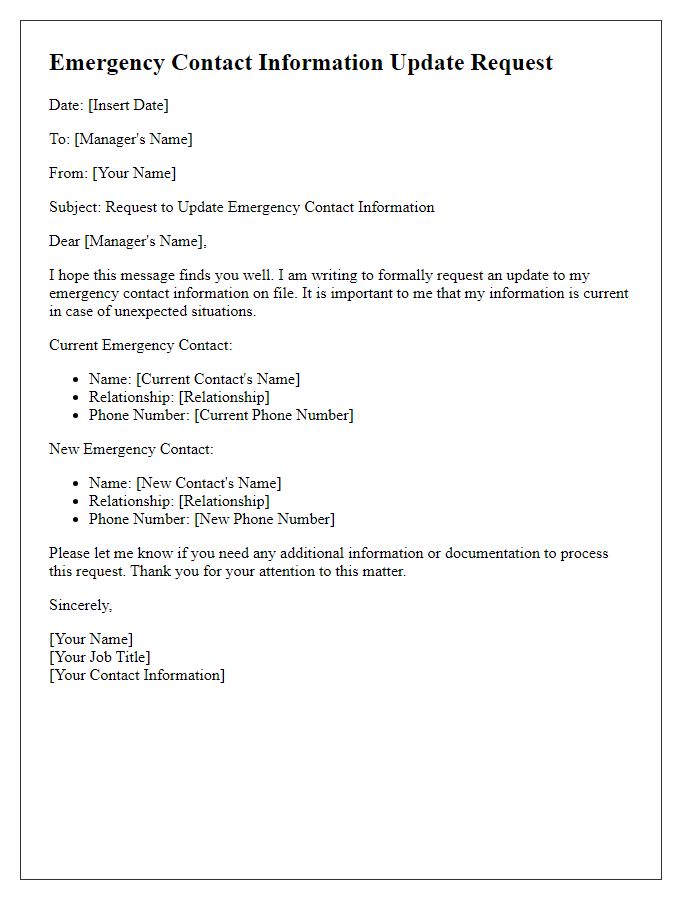
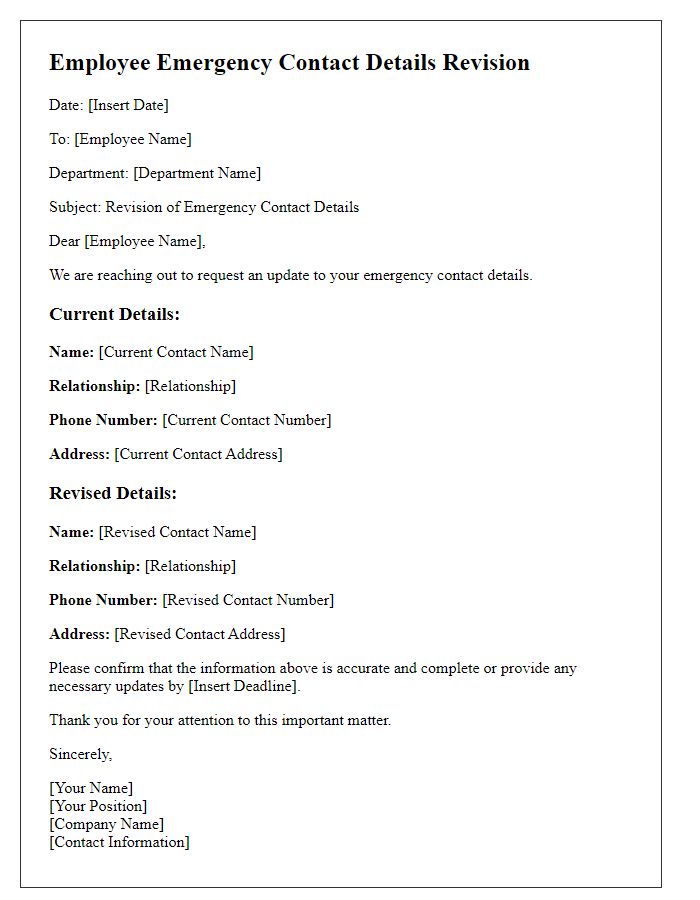
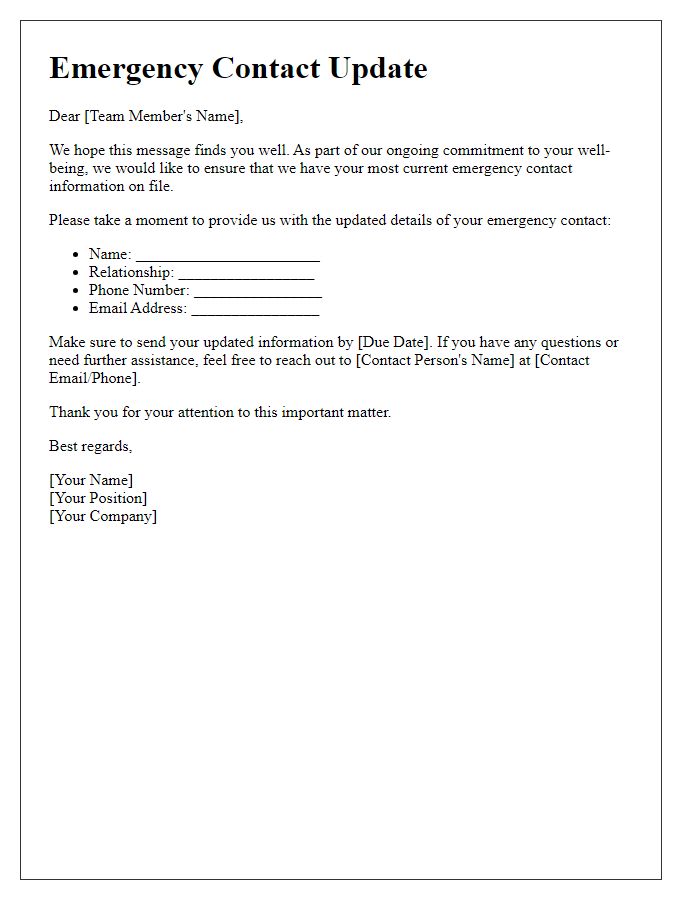
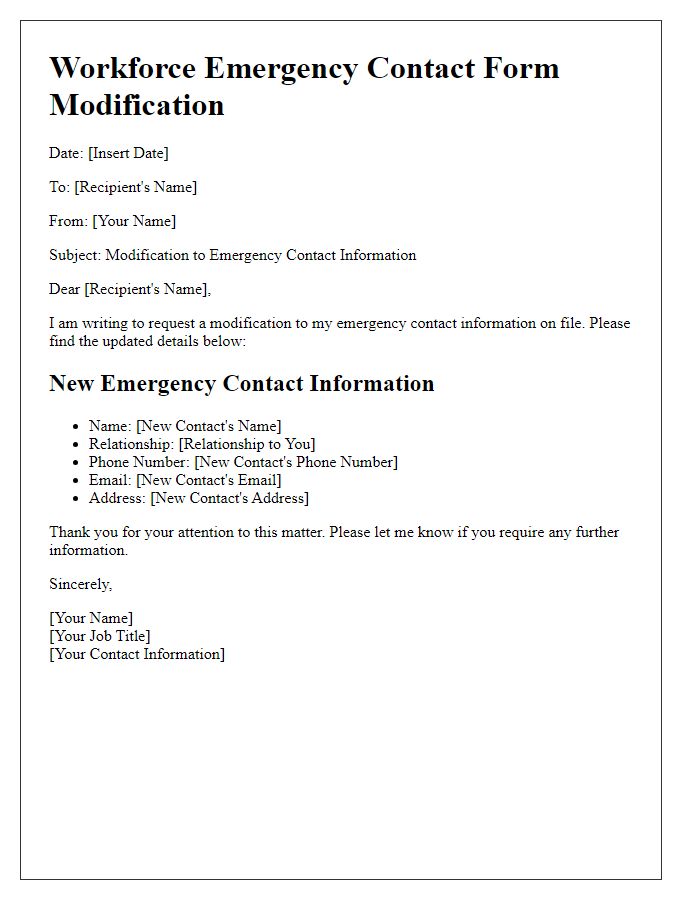
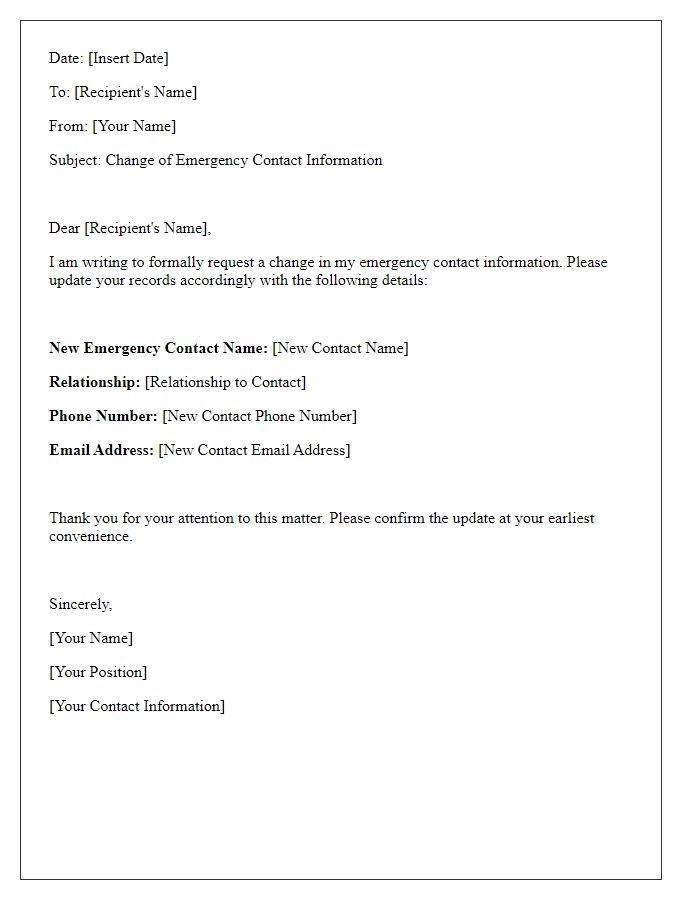
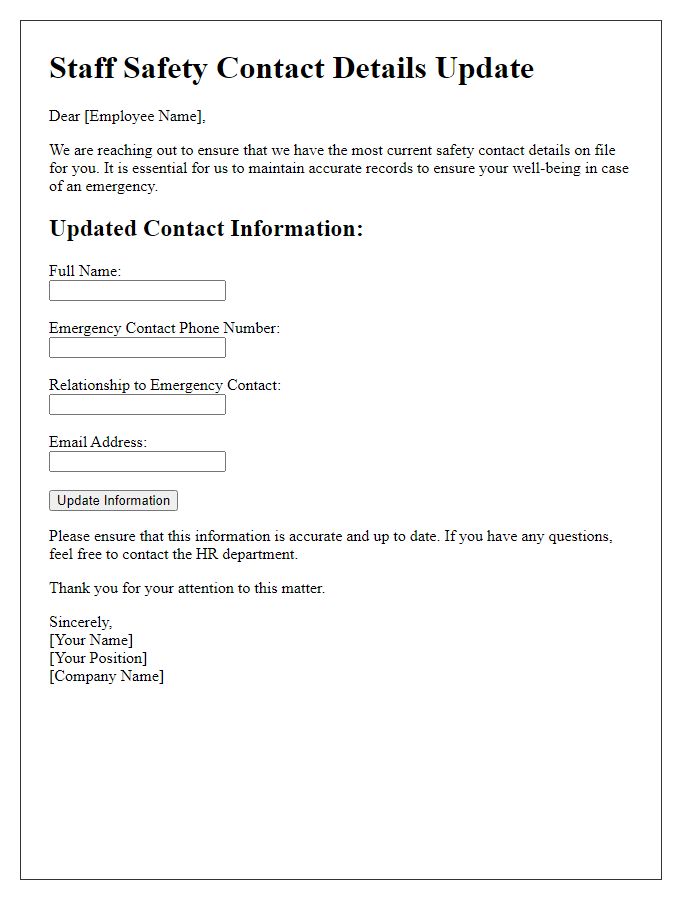
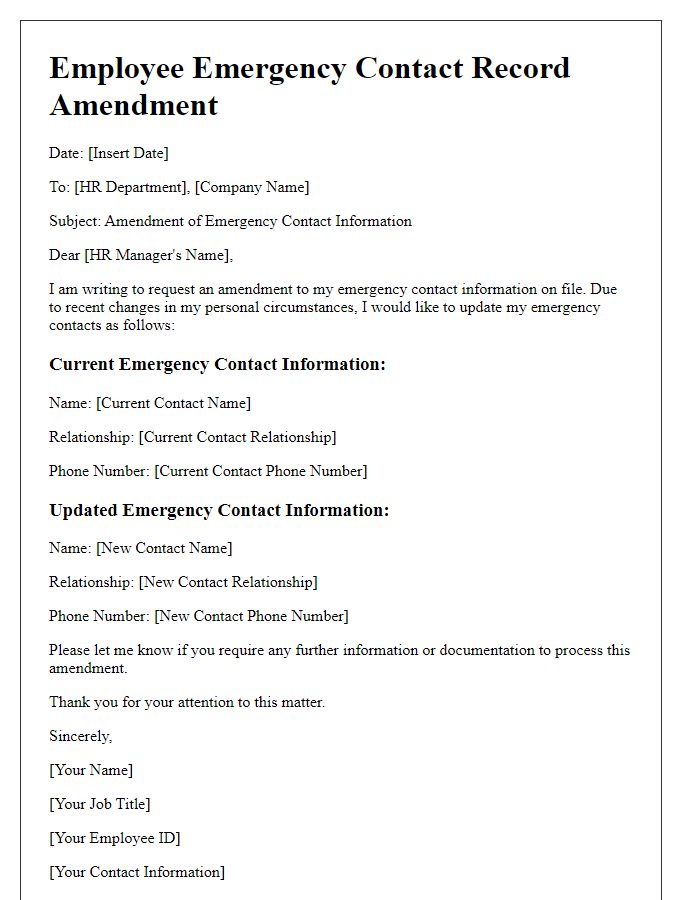
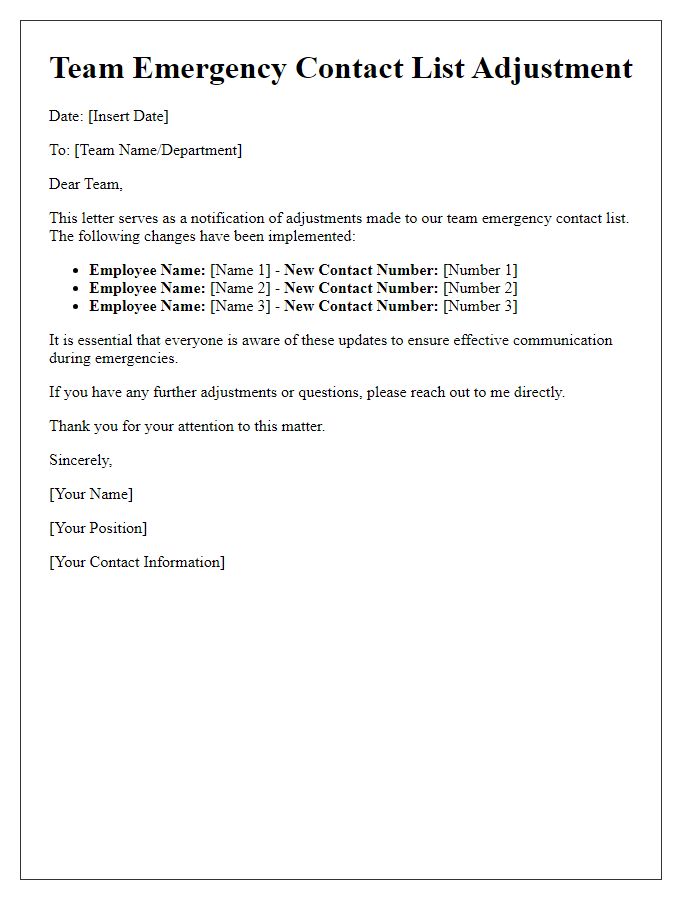
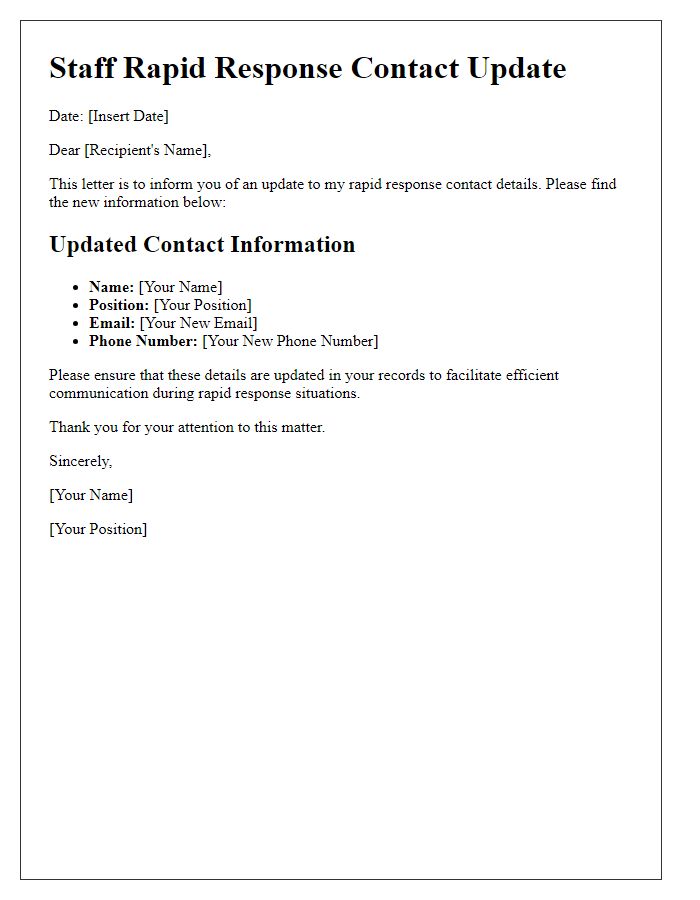
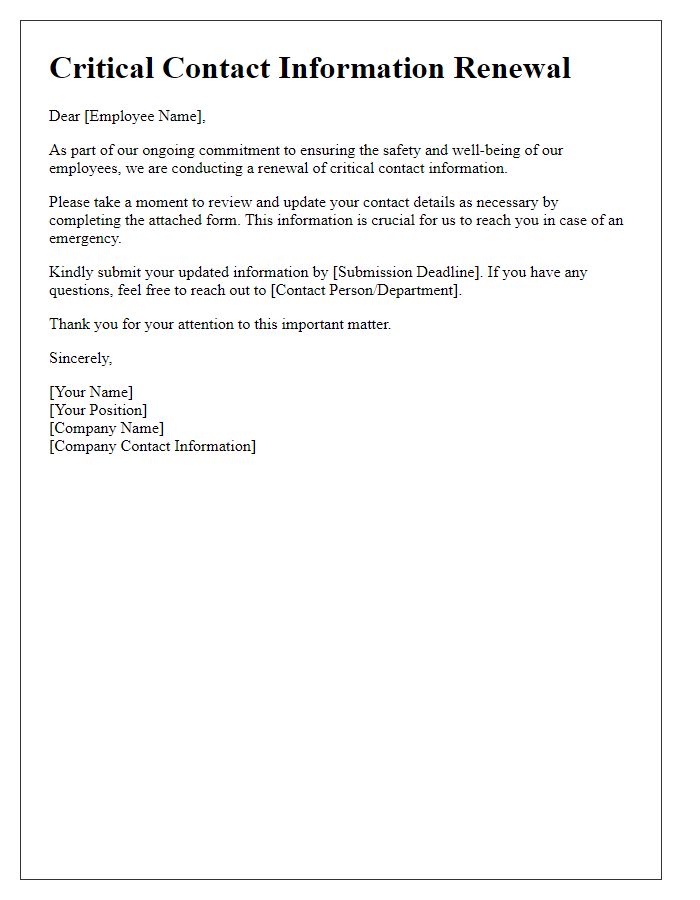


Comments